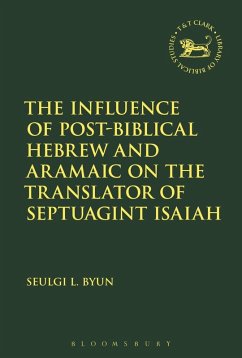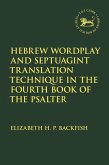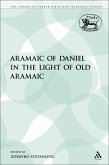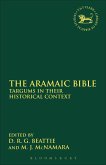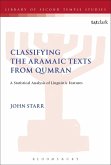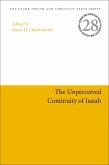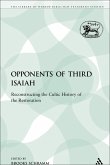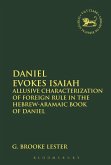For many years, scholars have noted that post-biblical Hebrew and Aramaic may have influenced some of the renderings in the ancient Greek versions of the Hebrew Bible, but examination of this has usually been done only in passing with little or no discussion and scant evidence. Seulgi L. Byun examines the ancient Greek version of Isaiah, commonly referred to as LXX (Septuagint) Isaiah, and examines a number of possible cases in depth in order to determine the degree to which semantic change within Hebrew, as well as the spread of Aramaic already in the Second Temple period, may have influenced the translator.
The book begins with an overview of key issues (semantic change; the development (or non-development) of the Hebrew language; previous scholarship; issues in the study of LXX Isaiah; and methodological considerations). This is followed by four larger sections representing various categories of examples where post-biblical Hebrew or Aramaic may have influenced renderings in the text, each offering specific examples. The first section contains examples where post-biblical Hebrew may have influenced LXX Isaiah; the second section offers examples of Aramaic influence; the third section addresses examples where the influence is not clear (possibly both post-biblical Hebrew and Aramaic); and the fourth section discusses the possibility of word manipulation - cases where the translator of LXX Isaiah 'manipulated' the Hebrew with a post-biblical Hebrew or Aramaic meaning/word in mind.
The book begins with an overview of key issues (semantic change; the development (or non-development) of the Hebrew language; previous scholarship; issues in the study of LXX Isaiah; and methodological considerations). This is followed by four larger sections representing various categories of examples where post-biblical Hebrew or Aramaic may have influenced renderings in the text, each offering specific examples. The first section contains examples where post-biblical Hebrew may have influenced LXX Isaiah; the second section offers examples of Aramaic influence; the third section addresses examples where the influence is not clear (possibly both post-biblical Hebrew and Aramaic); and the fourth section discusses the possibility of word manipulation - cases where the translator of LXX Isaiah 'manipulated' the Hebrew with a post-biblical Hebrew or Aramaic meaning/word in mind.

